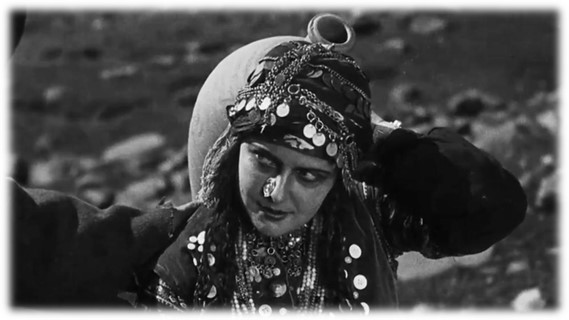Read the second part of this article here
In other parts of this article, we discussed the history and beginnings of women's role in socio-political movements and activities. We talked about how women have been able to play a role in European societies, especially in Kurdish society, and what is the role of women in world cinema or feminist cinema. Then we explained the role of women in Kurdish films and gave some examples of Kurdish and foreign filmmakers. In this part, we will continue our topic by introducing several other works.
Let's come to the films whose directors, actors, story, and language are entirely Kurdish. I have selected several Kurdish films that are not in any order of good or bad but are randomly selected. After 1926 and Baknazaryan's three films about the Yazidi Kurds, in the early and late 1980s, Taifur Bathayi in the East part of Kurdistan and Mahdi Umed in the South part of Kurdistan became known as the first Kurdish directors. In the early 1980s, Taifur Bathayi produced four documentaries, the most famous of which is "Bread and Freedom". In 1990, he made his first feature film, Galagurg (Wolf Pack). The scenario is written by Mahdi Umed, based on a story of the same name by Kurdish writer Hussein Aref. Before Galagurg in 1987, the scenario for Tunnel was written by Mahdi Umed and production began in 1988, making it the first Kurdish film.

Tunnel, Mahdi Umed, 1987-1988
According to Mahdi Umed, the film "Tunnel" is about the Kurdish genocide. In his film, he depicts a historical confusion in which Zardasht (Zoroaster) descends and witnesses the Kurdish tragedy. The incidents take place in a tunnel, where thousands of people are looking for a gateway to salvation. They eventually decide to establish a Kurdish state, and a Kurdish woman declares Kurdistan's independence. “My wish in the film was to let Kurdish politicians know that Kurdish art demands an independent state,” the director said. But does his will to declare Kurdistan's independence by a woman also mean the realization of women's freedom? Is it women's freedom that will also achieve Kurdistan's independence?
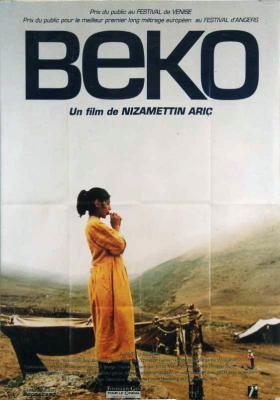
A speech to Bako, Nizameddin Arich, 1991
Nizameddin Arich's 1991 film A Speech to Bako starts with a political story. Bako (Nizameddin Arich) smuggled from the north across the Euphrates River to the west in order to find his brother Jamal (Camal Zhora) who intended to go and join the Peshmerga. From there he crossed the Western border and then the southern border through the Euforats River illegally. Across the border, several families live in tents for fear of the Iran-Iraq war. Bako is handed over to Zeino (Luska Hassan) to await news of his brother. Zeino somehow plays the role of the head or manager of the area and tents. Zeino decides and controls things. The Peshmergas become her guests and ask her about the situation in the region. Interestingly, the role of women in the film is not passive, but rather active. They work along with men, sit with men in their meetings, participate in political discussions, and express their opinions.
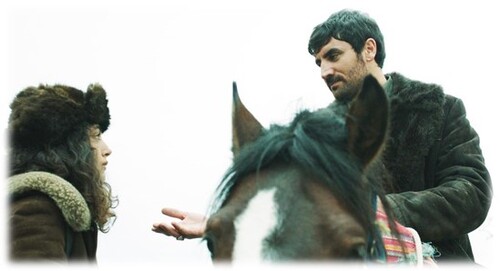
My sweet hot country, Hunar Salim, 2013
"My Sweet Bitter Country" is a 2013 film directed by Hunar Salim. According to the director, the film tells the story of a Kurdish Peshmerga who does not fit into the new era and has problems with how to deal with the new era and freedom. He has tried to describe two Kurdish eras, the mountain era, and the city era, and freedom. But the hero of the film is Govand, a woman who fights society to achieve her dreams. Besides wanting to educate children, he enjoys playing with the hand pan, which gives the film a special pleasure. She is an intellectual and artistic woman. Govand bravely crosses the border and goes to Qamarian village (a village located in Khalifan town of Soran city in Erbil province) to fulfill her mission.
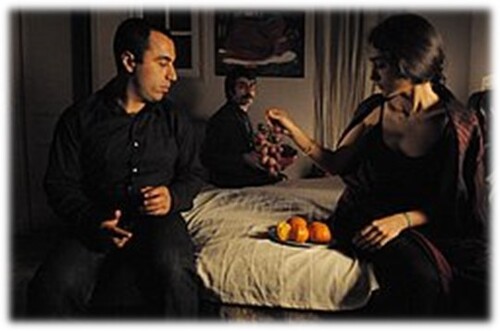
In general, women play an important role in Hunar Salim's films. “I don't think women have problems. I think it's men who have problems,” he said in an interview. That is why it is women, not men, who succeed in his films. In "If You Die, I'll Kill You," he focuses on the issue of women's honor in a patriarchal society. Women are always legitimized to be killed on the grounds of honor because only killing cleanses their honor! But Siba (the heroine) like Govand breaks boundaries to achieve her wish and succeeds.
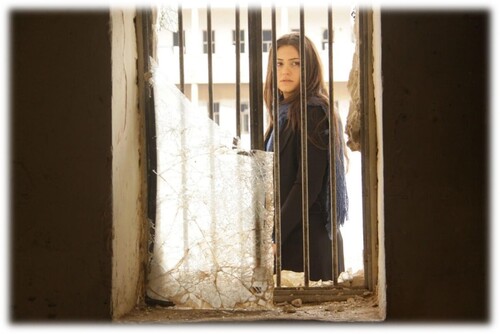
Thinking of Kavri, Shawkat Amin Korki, 2013
"Thinking of Kavri" is a 2013 film directed by Shawkat Amin Korki. The story of the film tells the story of the incessant challenges of making a Kurdish film in Kurdistan. The most obvious obstacle is finding a female actor, but the culture of cinema has not yet taken root in Kurdistan. Women are an honor that is not allowed to act in cinema because they have not protected their honor in this way and they should keep their honor clean! Sinur (Shima Molayi), the heroine of the film, accidentally sees on television that a female actress is being wanted for a film about the Anfal issue. Sinur, whose father was killed in Anfal and has suffered from life without a father all her life, wants to be part of the film. But in a patriarchal society, women are not allowed to decide first. Sinur has no father, but her uncle has to make decisions, but he doesn't agree because Sinur is not married yet! Hiwa (Bangin Ali) is Sinur's lover and cousin. She makes a condition for Sinur that if she becomes his wife, he will agree to participate in the film. Sinur is forced to accept to become Hiwa's wife. Will she escape the pressure despite this? Sinur is now the honor of Hiwa, so Hiwa owns Sinur! He becomes Sinur's guard, no one must hold her hands or get close to her because it is a disgrace to Hiwa and then to Sinur to allow these things! But ultimately victory is for the one who does not give up.
To be continued...

